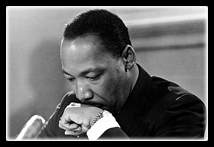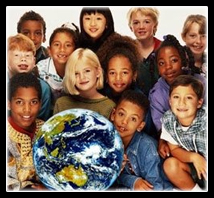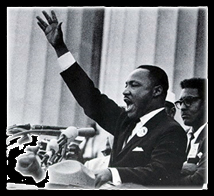-
Many Reasons To Remember
January 17, 2011
Have an opinion? Add your comment below. Dr. King's Dream Lives On In 2011
-
Dr. King's Dream Lives On In 2011

As we look back at and reflect on the dreams and visions of Dr. Martin Luther King Jr., whose birthday we celebrate this week, it's also a time to remember. It's a time to reflect on the aftershock of an event that would plunge the nation and the world into shock and mourning.
Like many others involved in the civil rights struggle, Dr. King's life and career were remarkably short. He was only 34 when he delivered his landmark "I Have A Dream" speech in Washington, DC in 1963. He was just 35 when he won the Nobel Peace Prize. And he was just 39 when he was shot down in a motel in Memphis in 1968.
Dr. King had a dream about African-Americans walking down main streets, sitting in the front of busses, eating at lunch counters, being admitted to the best colleges and no longer being afraid, no longer being forced to enter through and eat at rear entrances. In fact, Dr. King's back door was often the influence entry of some of America's most powerful leaders.
He was born and raised in Atlanta, and he preached a philosophy of equality and tolerance that impacted the entire world and recently earned him a rare honor as a Catholic martyr, even though he was Baptist. His legacy lives on today, not just in history books, but also through the everyday words and deeds of countless people who in 2011 still believe in and cherish his dream./p>
Dr. King's dream and struggles for freedom were not just black or brown struggles; they were human ones. He opened minds, hearts and doors in ways no one had ever done. He made us understand we are tied together in a human destiny of life and bound by faith. That's why we celebrate his life and continue to deeply mourn his passing./p>
Decade Brought Change - Not All Positive

A decade can bring a lot of change … and this past one did just that. Numbers from the latest release of the U.S. Census Bureau's American Community Survey, an annual sample of detailed data designed to replace the long form of the decennial census count, showed that the first decade of the 21st Century was rough in many ways for all of us. We continued to lose manufacturing jobs, and the percentage of people living below the poverty line in many of America's municipalities is positively startling.
But there are bright spots as well. For example, there were some cities that expanded their tax bases as they added new residential developments and residents. Here's a quick look at the last decade across those three areas — poverty, residential growth and manufacturing jobs and how they've changed between the 2000 census and the latest figures.
The Downward Slide
In a decade with two recessions, there are bound to be some stark economic figures that show how tough it's been for families all over America. In fact, several local communities ended the decade with more than 20% of their population living below the poverty line — up from four in 2000 — and several other measures show that the end of the decade was worse than the beginning.
As we move further into the new year, already we can anticipate some changes in our institutions, government, education, arts, business, radio and music. They all play an important role in advancing multiculturalism. We are, after all, part of an America of many cultures, people and languages. However, obstacles of prejudice and cultural ignorance remind us daily just how lofty a goal "justice for all" really is. In a multiracial society no group can make it alone.

The year 2011 will continue to be marked by some of the most revolutionary events in history: a change of power in Washington, a costly war still being fought in Iraq and Afghanistan, tremendous economic and technological advances, globalization, and the emergence of a new movement that has the power to change the face of today's society.
We find ourselves filled with questions. What kind of industry and country do we want to have? Can we remain competitive in this current decade and beyond? Can we move forward and still hold on to tradition? Will we continue working toward including rather than excluding those who are "other" from our communities, our schools, our radio stations, our record labels and our businesses?
If African-Americans still get much of their information about their communities from Black radio, how can we have a strong democracy when most stations are concentrated in the hands of only a few? And it's a few who do not necessarily reflect a growing part of our nation. If we develop into a nation of technological haves and have-nots, divided by income, race and ethnicity, we're going to take a giant step backwards. Rev. Jesse Jackson calls it "the re-segregation of America." Regardless of what it's called, it's real.
Speed Bumps
What is also real is the speed at which things are changing. Some call it "the digital decade." This past decade was one of high-definition 3D television and cameras; enhanced iPads; increased Internet speed and access; digital phones with mp3 capabilities; HD Radio; and Arbitron's new Portable People Meter, which is replacing the diary.
The question now becomes how do we make sure the information highway has on-ramps and off-ramps into every neighborhood? This is part of the digital divide. You see it where highways bypassed minority communities or walled them off from the mainstream of commerce. Today you can travel to almost any market in America and see those great superhighways. The information highway can be a bridge that brings us together as an industry or one that continues to divide us.
Today's consumers can shop and buy practically anything, anywhere, anytime. "Going to the mall" without having to be there is turning into a real-time choice as consumers use wireless, web and cable technologies to purchase products. The best customer is still an educated consumer.
Now the question that emerges is who educates him? Apathy leads to exploitation. The availability in digitized form of any contest, music, software, movies and books has already become a major factor. None of these things were even in the developing stages when Dr. Martin Luther King was alive, but now, thanks to the new technology, everybody knows about King, many through the use of the new technology.
Someone said of Dr. Martin Luther King's murder back in 1968, they have shot the dreamer and now we will see what happens to the dream. Today, in 2011, Dr. King's "dream" lives on. Dreamers and the power of dreams are important, no matter who's dreaming them.

Dreams allow us to see things other people don't see. All of us, whether we want to admit it or not, whether we can remember them or not, have dreams. Some of us are living our dreams. Some of us are still forming our dreams and unfortunately, some people's dreams are nightmares, or they've lost or given up on their dreams.
As we celebrate and commemorate his birthday, there are still many reasons to remember the man and the dream. We want to encourage you not to give up on your dreams and to keep the spirit of Dr. Martin Luther King's dreams and hopes alive.
Word.
-
-
